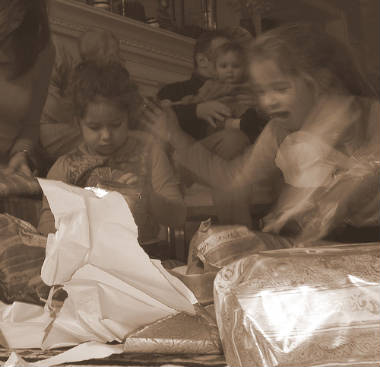The problem is that we think about giving gifts as the exchange of physical objects. A useful alternative is to think of a gift as communication. When you give a gift to someone, what you are actually doing is speaking to them. You buy, make or discover a gift that says something to the receiver. They receive the gift, and if they are perceptive, they understand your message. Of course this is obvious, but somehow we forget it when we go to choose gifts. We focus first on the object or the need, then check what message it conveys.
You may have realised gifts are communication when someone gives you a gift and you are instantly aware of what it says. Some gifts communicate distance, others intimacy. Some say ” I love your creativity”, others “You should look after yourself”. Some are downright insulting. What gifts communicate is seldom attached to their price tag or their prestige. Some of the gifts that I have appreciated the most have been practically free for the giver to arrange for me, but have said so much that they have been immensely valuable.
If you harness this thinking, when you choose gifts, then you can quickly move towards the perfect gift. Ask yourself first, “What do I want to say to this person?” Then move on to “What can I give them that will communicate this?”. This is opposite to the more common “What can I buy them?” and then “What will they think of it?”.
This method could help you come up with some slightly off beat gifts, but at least they will be meaningful. One gift that I received recently was given as a result of this sort of thinking. My wife gave me a 1 day ticket of freedom. She took on all of my responsibilities for a day and sent me off to Tokyo to play. She wanted to say that she appreciated everything that I did, and that she understood that my responsibilities were sometimes a burden to me. That helped her to design the perfect gift which was simply a break from it all. I loved it.
The gifts that we come up with when we think of gifts as communication may be the same that we would think of in other ways. The difference may simply be that we arrive at a decision faster and with more certainty that our gift is right for that person.
Of course, there is a caveat. If you have nothing positive to say to the person, but feel that you must give a gift, then go back to your old ways of thinking. Communicating negative things with a gift, may not be the best way to enjoy your Christmas. Try it only if you are feeling brave.
Merry Christmas!
Tom
